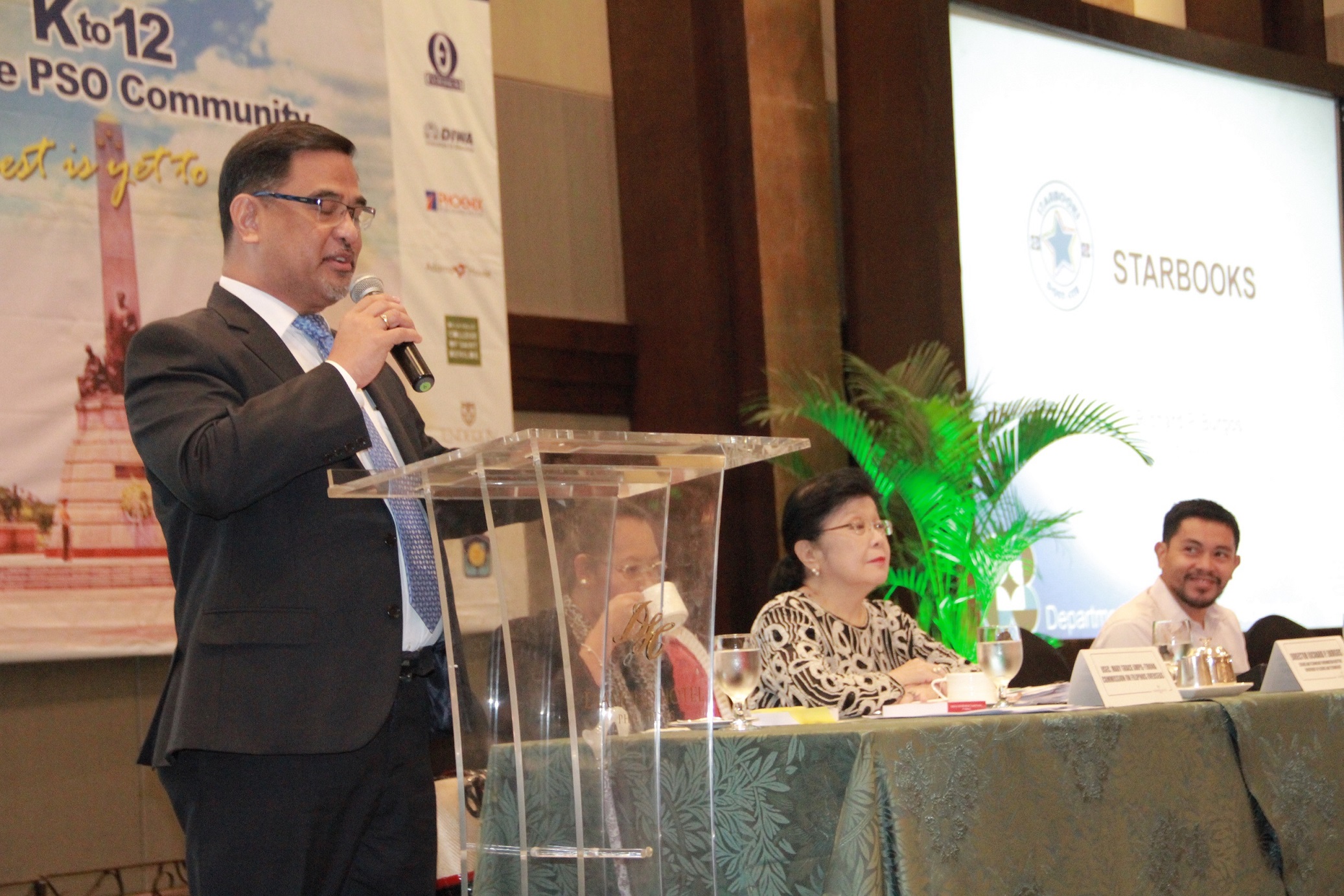
MANILA, June 16 — The Science and Technology Academic Research-Based Openly Operated Kiosks (STARBOOKS) is set to step into a new territory as it is now eyed to serve as resource for Filipino schools overseas. This was announced recently in the 14th Conference of Philippine Schools Overseas (PSO) held in Diamond Hotel, Manila.
During said conference, Commission of Filipino Overseas (CFO) Executive Director Mary Grace A. Tirona stressed the needs of children of Filipinos overseas, particularly their reintegration into the Philippine educational system including K to 12 upon their return to the Philippines. STARBOOKS was identified as an important resource that will provide science and technology information materials in the Philippine context.
“There are also children of scientists and engineers abroad who are studying in PSOs,” Department of Science and Technology-Science and Technology Information Institute Director Richard P. Burgos said. “Thus PSOs are also natural breeding ground for future scientists and engineers. It will be beneficial to these kids if they are already exposed to Filipino content through STARBOOKS in Filipino schools overseas.”
PSOs also provide a venue for the teaching and propagation of Filipino culture and heritage among Filipino youth overseas, and serve as a locus for Filipino community activity as stated in PSO’s mission.
“We want to disseminate as wide as possible our collection,” Dir. Burgos told. “For us, science and technology information must be shared and disseminated. It’s useless if such information will remain in our library. So what we have done is to digitize our collection and now we are able to share the entire collection to the public.”
STARBOOKS, present in 877 areas nationwide (as of April 30, 2016), aims to provide science and technology materials available to the general public including the marginalized populations in remote areas with rare access to information resources, no libraries, and no Internet connectivity while integrating the Fiipino-context information. (DOST)







